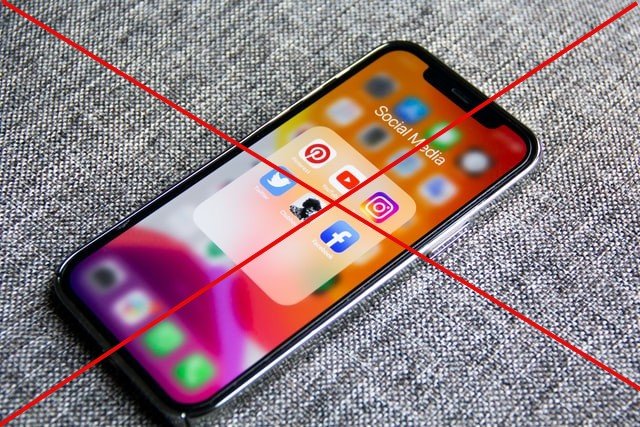What is China up to with the cryptocurrency ban?
Hello, Hivers friends!!! Today I come to tell you a little bit about the second most relevant news in the world that has emerged from China. Perhaps as many of us already know, since we are in this world of digital currencies, is the ban on the use of cryptocurrencies in the Asian giant, yes again, as they had already done the same by banning bitcoin mining, of course with this announcement the price collapse was expected as well as other currencies.
In my opinion, this measure of prohibition of all activity with cryptos has to do somehow with the relevant news that we learned earlier this week, the possible bankruptcy of one of the largest real estate companies in this country, and that in turn if this fact were to occur would come a great financial crisis that would affect to a greater extent to Latin American countries, but perhaps I will talk about this fact in another post.
¡¡Hola, amigos Hivers!! El día de hoy les vengo a comentar un poco sobre la segunda noticia más relevante en el mundo que ha surgido desde China. Quizás como ya muchos de nosotros sabemos, ya que estamos en este mundo de las monedas digitales, es la prohibición del uso de las criptomonedas en el gigante asiático, si nuevamente, como ya habían hecho lo propio prohibiendo la minería del bitcoin, claro está que con este anuncio el desplome del precio era de esperarse al igual que el de las demás monedas.
A mi parecer, esta medida de prohibición de toda actividad con criptos tiene que ver de alguna manera con la noticia relevante que conocimos a principio de semana, la posible quiebra de unas de las empresas inmobiliarias más grande de este país, y que a su vez si este hecho llegase a ocurrir se vendría una gran crisis financiara que afectaría en mayor medida a los países latinoamericanos, pero de este hecho quizás hable en otro post.

Photo by Christine Roy on Unsplash
Let's continue with today's hype. When I saw all the news that came out of the statement issued by the Central Bank of China where it explains all its reasons for not using cryptocurrencies in that country, a great concern arose in my mind, and that is, what is this country up to? It is no secret that while all countries' economies were affected by the pandemic, one of the few countries whose economy continued to grow was this one.
If this country already has a crypto which is the E-Yuan, why is it seeking to ban other cryptos that are free from the control of a person? Obviously many people know the answer, or many think that it is contradictory, but in my opinion they make the prohibition so that the population adopts the national crypto and that this has confidence among citizens.
Sigamos con el revuelo del día de hoy. Al ver todas las noticias que surgieron por el comunicado emitido por el Banco Central de China donde explica todos sus motivos por el cual acoge la postura de no usar las criptos en ese país, me surgió una gran inquietud y es, ¿qué tiene entre manos este país? Ya que para nadie es secreto que mientras todas las economías de los países se vieron afectadas debido a la pandemia unos de los pocos países que su economía seguía en alza fue este.
También ustedes se pregunten ¿Si este país ya tiene un cripto que es el E-Yuan, porque busca prohibir las demás criptos que están libres del control de una persona? Obviamente la respuesta mucho se la sepan, o muchos piensen que es contradictorio, pero a mi parecer hacen la prohibición para que la población adopte la cripto nacional y que esta tenga confianza entre los ciudadanos.

Taking the above into account, we must know that this country on several occasions have banned websites and social networks to give way to own adaptations (ie Made in China) as is the case of Google when in 2010, many users in China suffered cyber attacks through their Gmail accounts and also in part the disagreements of this company with the search restrictions suggested by the central government is where Baidu enters, the search engine that this country uses by preference among its inhabitants (And no, it is not the only one they have) taking into account that they have more search engines, each one specializes in certain searches and each one more famous than the other, (And if they also have Bing, but they do not have Yahoo).
We can also comment on the case of Facebook which was banned in the country in 2009 due to a series of riots between ethnic groups: the "Han ethnic group" which is the majority in the country, and the "Uyghur ethnic group", which resulted from an outbreak of violence that was motivated by the long conflict between these groups, and the clashes were planned by groups in this social network, therefore on August 14, 2009 SINA Corporation launched Sina Weibo, a social network very similar to Facebook.
The country also launched Wechat, but this time to compete with the Whasapp messaging service. And Youtube could not be missing, which is not available in the Asian country, but it has Youku, which is practically a Youtube but created by an entrepreneur from this country.
Teniendo lo anterior ya en cuenta, debemos saber que este país en varias ocasiones han prohibido sitios webs y redes sociales para darles paso a adaptaciones propias (es decir Made in china) tan es el caso de Google cuando en el 2010, muchos usuarios en China sufrieron ataques cibernéticos por medio de sus cuentas Gmail y también en parte los desacuerdos de esta empresa con las restricciones de búsqueda que sugería el gobierno central es allí donde entra Baidu, el motor de búsqueda que este país usa por preferencia entre sus habitantes (Y no, no es el único que tienen) teniendo en cuenta que tienen más buscadores, cada uno se especializa es ciertas búsquedas y cada uno más famoso que otro, ( Y si también tienen Bing, pero no tienen Yahoo).
También podemos comentar el caso de Facebook que fue prohibido en el país en el año 2009 motivado a una serie de disturbios entre etnias: la “etnia han” que es la mayoritaria en el país, y la “etnia uigur”, la cual derivó de un brote de violencia que se vino motivado por el largo conflicto entre estos grupos, y los enfrentamientos eran planeados por grupos en esta red social, por lo tanto el 14 de agosto de 2009 SINA Corporation lanzó Sina Weibo, una red social muy similar a Facebook.
El país también lanzo Wechat, pero esta vez para competir con el servicio de mensajería de Whasapp. Y no podía faltar la Youtube que no está disponible en el país asiático, pero este cuenta con Youku, que prácticamente es un Youtube pero creado por un empresario de este país.

Photo by Adem AY on Unsplash Edited with PixlrX
Maybe you are thinking that I have deviated from the topic, but no, I wanted to put you a little in context so that now you feel or think the point of view that rumbles in my head to know that all crypto-financial activity is prohibited in this country, and is that knowing what China prohibits they seek another alternative to continue using the "forbidden". I am not the one to say that what they do is bad or good, that's for each one to judge, but to be investigating and see that most of the things they did as an alternative has a great receptivity among its population and in neighboring countries, so with this ban perhaps this Asian giant has in its hands to launch a cryptocurrency to dethrone the Bitcoin, how? I do not know but we can not rule it out.

Photo by Dmitry Demidko on Unsplash Edited with PixlrX
https://twitter.com/yormanbt/status/1441525425230995457
The rewards earned on this comment will go directly to the person sharing the post on Twitter as long as they are registered with @poshtoken. Sign up at https://hiveposh.com.
Congratulations @yormanbf! You have completed the following achievement on the Hive blockchain and have been rewarded with new badge(s):
Your next target is to reach 100 comments.
You can view your badges on your board and compare yourself to others in the Ranking
If you no longer want to receive notifications, reply to this comment with the word
STOPCheck out the last post from @hivebuzz:
Support the HiveBuzz project. Vote for our proposal!